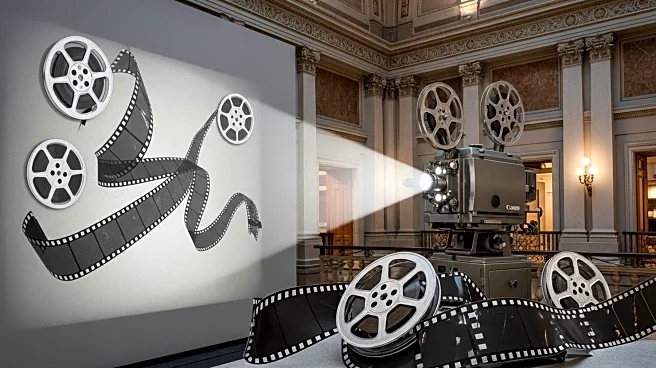What is the story about?
What's Happening?
Steve McQueen, renowned artist and film director, is set to screen his 34-hour film 'Occupied City' at the Rijksmuseum. The film explores over 2,000 locations in Amsterdam during the Nazi occupation, capturing the city's historical and modern narratives. McQueen collaborated with historian Bianca Stigter, whose book 'Atlas of an Occupied City' documents the city's wartime history. The film will be projected silently on the museum's facade and shown with sound in the auditorium, reflecting on themes of freedom and historical memory.
Why It's Important?
The screening of 'Occupied City' is significant as it offers a comprehensive reflection on Amsterdam's history during World War II, highlighting the impact of Nazi occupation on the city's Jewish population and other dissenters. The film's extensive runtime allows viewers to engage deeply with the historical context and its relevance to contemporary issues such as freedom and resilience. This event underscores the importance of preserving historical narratives and fostering dialogue about past atrocities and their lasting effects.
What's Next?
The film will be continuously screened at the Rijksmuseum from September 12 to January 25, 2026. This extended exhibition period provides ample opportunity for audiences to experience the full scope of McQueen's work. The screening may prompt further discussions and educational initiatives about Amsterdam's wartime history and its implications for current societal challenges. Stakeholders in the arts and historical preservation sectors may explore additional collaborations to expand the reach and impact of such projects.
Beyond the Headlines
McQueen's film not only revisits historical events but also connects them to present-day social movements, such as Black Lives Matter and climate change protests. This juxtaposition invites viewers to consider the ongoing struggle for justice and equality, drawing parallels between past and present. The film's silent projection on the museum's facade serves as a metaphor for the often invisible narratives that shape our understanding of history and identity.















